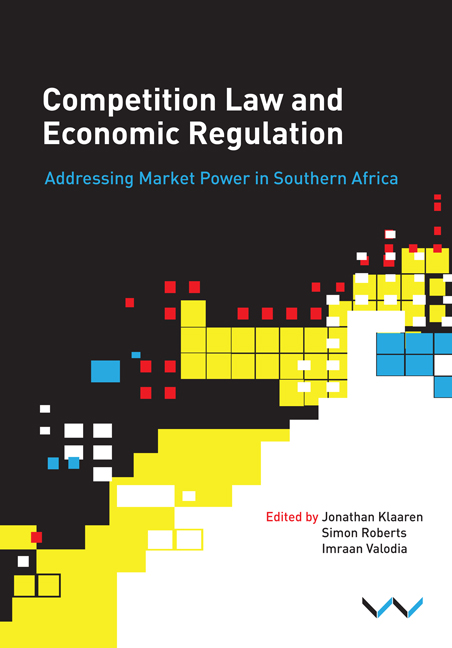 Competition Law and Economic Regulation in Southern Africa
Competition Law and Economic Regulation in Southern Africa Book contents
- Frontmatter
- Contents
- Tables, figures and boxes
- Acknowledgements
- Acronyms and abbreviations
- Introduction: The development of competition and regulation in southern Africa
- Part One Cartel law enforcement
- 1 Penalties and settlements for South African cartels: An economic review
- 2 Cartel likelihood, duration and deterrence in South Africa
- 3 Cartel enforcement in the southern African neighbourhood
- Part Two Issues in competition and regulation
- Part Three Competition and regulation in reshaping African markets
- Part Four Conclusion
- Contributors
- Index
3 - Cartel enforcement in the southern African neighbourhood
from Part One - Cartel law enforcement
Published online by Cambridge University Press: 23 March 2018
- Frontmatter
- Contents
- Tables, figures and boxes
- Acknowledgements
- Acronyms and abbreviations
- Introduction: The development of competition and regulation in southern Africa
- Part One Cartel law enforcement
- 1 Penalties and settlements for South African cartels: An economic review
- 2 Cartel likelihood, duration and deterrence in South Africa
- 3 Cartel enforcement in the southern African neighbourhood
- Part Two Issues in competition and regulation
- Part Three Competition and regulation in reshaping African markets
- Part Four Conclusion
- Contributors
- Index
Summary
INTRODUCTION
South Africa began to implement its modern competition law in 1998 after a series of reforms following the 1994 political transformation. Its successful enforcement against cartels is yet to be replicated in other economically interconnected countries in the Southern African Customs Union (SACU) and the Southern African Development Community (SADC). Of the BLNS (Botswana, Lesotho, Namibia, Swaziland) countries within the SACU community, only Lesotho does not have a competition law or enforcement system. The SADC operates on a larger scale and has 14 member states: Angola, Botswana, Democratic Republic of the Congo, Lesotho, Madagascar, Mauritius, Mozambique, Namibia, Seychelles, South Africa, Swaziland, Tanzania, Zambia and Zimbabwe. All the SACU countries are members of the SADC as well. For the purposes of this chapter, all countries that are members of the SADC and/or SACU are neighbouring countries to South Africa.
Sectors such as mining, petroleum and agricultural products have been a subject of anticompetitive interest in South Africa, notably in relation to cartel activity. Despite the high number of cartels that have been unearthed in South Africa, there does not seem to be equivalent success in the neighbouring countries. This chapter deals with this issue by reviewing selected cartels that have been unearthed in South Africa, with possible links to other SACU/SADC member states. It also references a survey on selected SACU/SADC member states in relation to their cartel enforcement and sectors that have been a subject of cartel investigation in South Africa. The chapter ends with an attempt to highlight lessons that other competition authorities in the SACU/SADC can learn from the success story of the Competition Commission of South Africa (CCSA) in cartel enforcement.
WHY NEIGHBOURS MUST BE WORRIED ABOUT CARTELS UNEARTHED IN SOUTH AFRICA
South Africa is a key source of direct and indirect investment in sectors such as mining, retail and, to an extent, manufacturing. SACU's BLNS countries’ import bill from South Africa has been dominated by petroleum and related products (including bitumen), cement, motor vehicles, iron ore and concentrates. By 2012, Botswana was the fourth-largest destination for South African exports, at 5.1% of the exports, which accounted for 91.4% of total intra-SACU imports (see SACU, 2012). As for the SADC, the main intra-SADC trade export items include petroleum, agricultural products, electricity and clothing and textile products (SADC, n.d.).
- Type
- Chapter
- Information
- Competition Law and Economic Regulation in Southern AfricaAddressing Market Power in Southern Africa, pp. 71 - 94Publisher: Wits University PressPrint publication year: 2017


